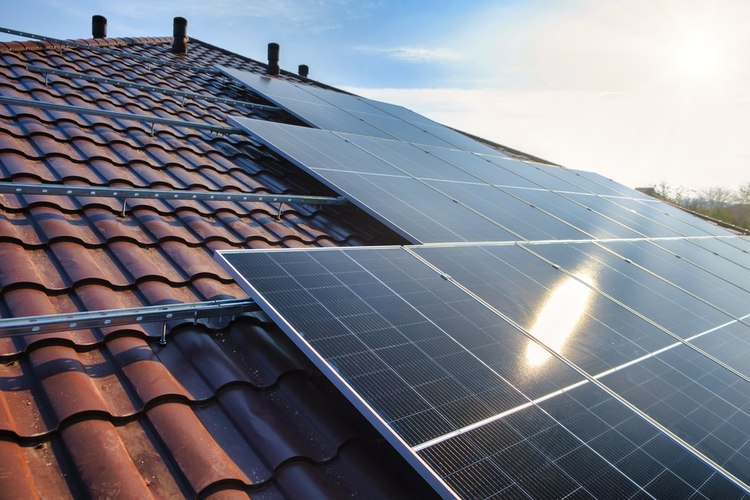UK Government Support for Energy-Efficient Heating Systems
Replacing an outdated heating system can feel like a significant financial burden, but UK homeowners now have access to various government-backed schemes designed to ease this transition. These initiatives aim to reduce carbon emissions, lower energy bills, and improve home comfort by supporting the installation of more efficient and environmentally friendly heating solutions.

How UK homeowners benefit from replacement grants
Government grants for heating system upgrades offer homeowners a practical way to modernise their homes while contributing to national climate goals. These schemes typically provide financial assistance to cover part or all of the installation costs for qualifying systems. Homeowners can reduce their energy consumption, lower monthly bills, and increase property value. Additionally, many schemes prioritise low-income households, ensuring that financial barriers do not prevent access to cleaner, more efficient heating. By taking advantage of these grants, homeowners can make environmentally responsible choices without shouldering the full financial burden.
What to know about government support for new systems
Several government programmes have been established to help UK residents transition to greener heating solutions. The most prominent initiative is the Boiler Upgrade Scheme, which provides grants to support the installation of low-carbon heating systems such as heat pumps and biomass systems. Eligibility criteria often include property type, existing heating system, and household income. It is important to note that not all heating systems qualify for support, and homeowners must work with certified installers to access funding. Understanding the application process, deadlines, and documentation requirements is essential to ensure a smooth experience.
A simple guide to the UK upgrade schemes
Navigating government support programmes can seem complex, but breaking down the process into manageable steps makes it easier. First, homeowners should assess their current heating system and determine whether it meets the criteria for replacement. Next, research available schemes and identify which one aligns with your needs and property type. Once you have selected a scheme, consult with accredited installers who can provide quotes and guide you through the application process. After approval, the installation can proceed, and the grant funds are typically paid directly to the installer. Keeping detailed records and following all guidelines ensures compliance and maximises the benefits of the scheme.
Grants that promote energy efficiency
Energy efficiency is at the heart of many government-backed heating programmes. By replacing older, less efficient systems with modern alternatives, homeowners can significantly reduce their carbon footprint. Heat pumps, for example, use renewable energy sources and can provide both heating and cooling, making them a versatile option. Biomass systems utilise organic materials, offering a sustainable alternative to fossil fuels. These systems not only lower greenhouse gas emissions but also reduce reliance on traditional energy sources, contributing to a more sustainable future. Grants that promote energy efficiency help make these technologies more accessible and affordable for a wider range of households.
Understanding your options for eco-friendly replacements
When considering an eco-friendly heating system, homeowners have several options to choose from. Air source heat pumps extract heat from the outside air and are suitable for most properties. Ground source heat pumps draw heat from the ground and are highly efficient but require more space for installation. Biomass systems burn wood pellets or logs and are ideal for rural properties with access to fuel sources. Hybrid systems combine traditional heating with renewable technology, offering flexibility and efficiency. Each option has its own advantages, costs, and installation requirements, so it is important to evaluate your property, budget, and long-term goals before making a decision.
| Heating System Type | Typical Grant Amount | Estimated Installation Cost | Annual Running Cost |
|---|---|---|---|
| Air Source Heat Pump | £5,000 - £6,000 | £8,000 - £14,000 | £500 - £1,200 |
| Ground Source Heat Pump | £6,000 - £7,500 | £20,000 - £35,000 | £400 - £1,000 |
| Biomass System | £5,000 | £9,000 - £21,000 | £600 - £1,400 |
| Hybrid System | Varies | £6,000 - £12,000 | £600 - £1,300 |
Prices, rates, or cost estimates mentioned in this article are based on the latest available information but may change over time. Independent research is advised before making financial decisions.
Final thoughts on heating system upgrades
Upgrading to a more efficient and environmentally friendly heating system is a significant investment, but government support schemes make it more achievable for many UK homeowners. By understanding the available options, eligibility requirements, and application processes, you can make informed decisions that benefit both your household and the environment. Whether you opt for a heat pump, biomass system, or hybrid solution, taking advantage of these grants can lead to long-term savings, improved comfort, and a reduced carbon footprint. Careful planning and working with certified professionals will ensure a successful transition to greener heating.




